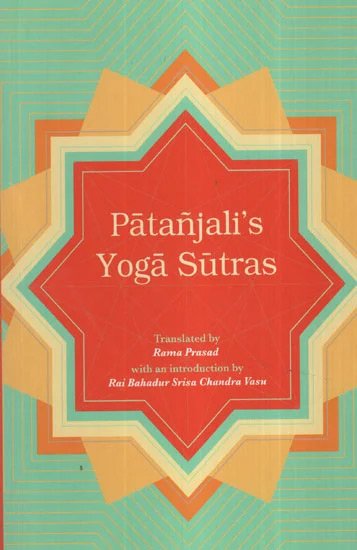Yoga-sutras (with Vyasa and Vachaspati Mishra)
by Rama Prasada | 1924 | 154,800 words | ISBN-10: 9381406863 | ISBN-13: 9789381406861
The Yoga-Sutra 3.47, English translation with Commentaries. The Yoga Sutras are an ancient collection of Sanskrit texts dating from 500 BCE dealing with Yoga and Meditation in four books. It deals with topics such as Samadhi (meditative absorption), Sadhana (Yoga practice), Vibhuti (powers or Siddhis), Kaivaly (isolation) and Moksha (liberation).
Sūtra 3.47
Sanskrit text, Unicode transliteration and English translation of Sūtra 3.47:
ततो मनोजवित्वं विकरणभावः प्रधानजयश् च ॥ ३.४७ ॥
tato manojavitvaṃ vikaraṇabhāvaḥ pradhānajayaś ca || 3.47 ||
tataḥ—thence, mano-javitvam—quickness (as of the mind). vikaraṇa-bhāvaḥ—uninstrumental perception, pradhāna—over the first cause. jayaḥ—mastery.
47. Thence come quickness as of mind, un-instrumental-perception and mastery over the Pradhāna (First Cause.)—153.
The Sankhya-pravachana commentary of Vyasa
[English translation of the 7th century commentary by Vyāsa called the Sāṅkhya-pravacana, Vyāsabhāṣya or Yogabhāṣya]
[Sanskrit text for commentary available]
Quickness as of mind consists in the attainment by the body of very quick motion.
Un-instrumental Perception means the action of the senses at any time or place without the necessity of the presence of the body.
Mastery over the Pradhāna means the power of control over all the modifications of the Prakṛti. These three attainments are called by the name of Madhupratikā. These are obtained by conquering the substantive appearance (svarūpa) of the five instruments of sensation.—153.
The Gloss of Vachaspati Mishra
[English translation of the 9th century Tattvavaiśāradī by Vācaspatimiśra]
The author mentions the attainments due to the conquest of the five appearances of the senses:—‘Thence come quickness as of mind, un-instrumental perception and mastery over the Pradhāna.)
Un-instrumental perception is the action of the senses outside the body. Place means Cashmere, &c. Time means past, &c. Sphere means the subtle, &c.
Mastery over the Pradhāna means control of the modification of the Prakriti by the conquest of the senses together with the power of conjunction. These are the attainments which are called the Madhupratikās by the knowers of Yoga.
Well, it may be that by the conquest of the senses they may come under control. But how their causes, the Pradhāna, &c.? For this reason he says: ‘And these, &c.’ The five appearances of the senses are their act, &c.
‘By their conquest, &c.’ The meaning is this: It is not by the mere conquest of the senses that these powers are obtained, but by the conquest of all the five appearances; and the Pradhāna, &c., fall within these.—47.
